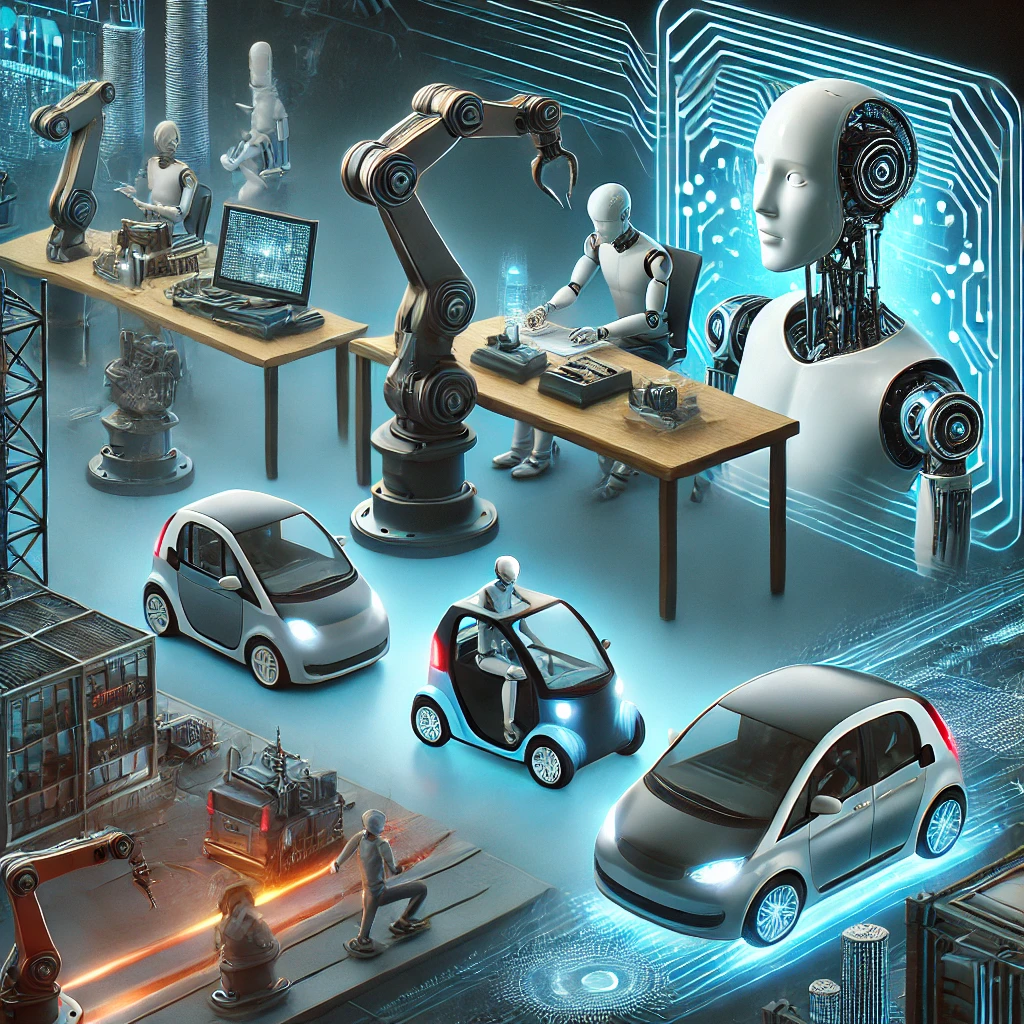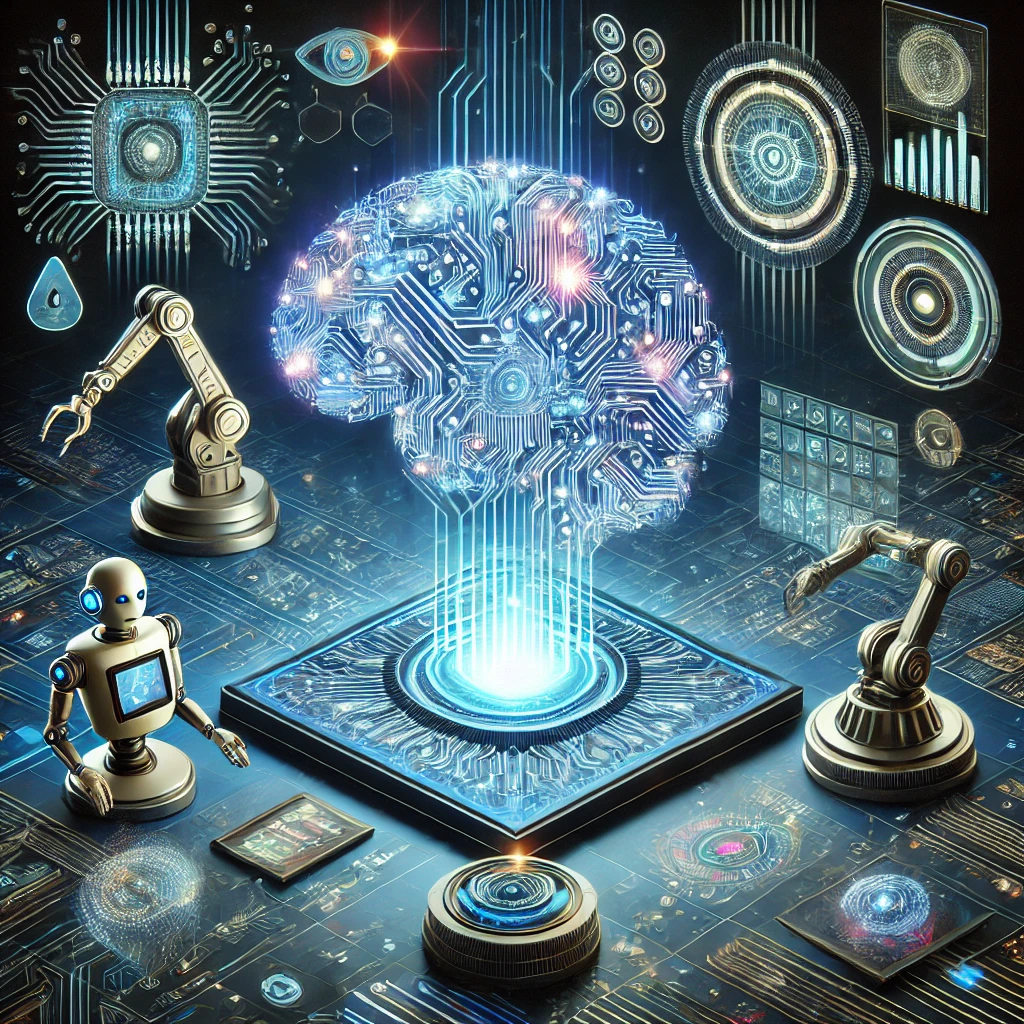Artificial Intelligence (AI) has been one of the most transformative technologies in recent years. From automation in industries to intelligent assistants in our smartphones, AI is shaping the way we live and work. However, one pressing concern that often comes up is whether AI will lead to massive job losses. Will machines take over human jobs, leaving millions unemployed? Or will AI create new opportunities that we have yet to explore? Let’s break this down logically.
The Fear of Job Loss
 The fear of machines replacing human workers isn’t new. History shows us that every industrial revolution has sparked concerns about job losses. When automobiles were introduced, people worried that the horse carriage industry would collapse. When computers became mainstream, many thought clerical jobs would disappear.
The fear of machines replacing human workers isn’t new. History shows us that every industrial revolution has sparked concerns about job losses. When automobiles were introduced, people worried that the horse carriage industry would collapse. When computers became mainstream, many thought clerical jobs would disappear.
Similarly, AI-powered automation is already replacing repetitive and routine jobs. In manufacturing, robots are taking over assembly line tasks. In customer service, AI chatbots are handling queries without human intervention. In transportation, self-driving technology threatens to replace truck and taxi drivers. These developments suggest that certain jobs will indeed become obsolete.
Jobs at High Risk
 Some roles are more vulnerable to AI-driven automation than others. Jobs that involve repetitive, predictable tasks are at the highest risk. These include:
Some roles are more vulnerable to AI-driven automation than others. Jobs that involve repetitive, predictable tasks are at the highest risk. These include:
- Data Entry Clerks: AI can process and analyze data much faster and more accurately than humans.
- Cashiers: Self-checkout systems and digital payments are reducing the need for human cashiers.
- Telemarketers: AI-powered bots are already hand 9ling customer outreach and sales calls.
- Manufacturing Jobs: Robotics and AI-driven machines are automating production lines.
- Basic Customer Support: Chatbots are handling queries and resolving issues without human intervention.
These jobs don’t require complex decision-making, creativity, or emotional intelligence—areas where AI still struggles.
The Silver Lining: New Job Creation
While AI eliminates some jobs, it also creates new ones. Historically, technological advancements have led to the emergence of new industries and job roles. AI is no different. Some of the fastest-growing fields today exist because of AI, such as:
- AI and Machine Learning Specialists: Demand for experts who can develop, train, and maintain AI systems is skyrocketing.
- Data Analysts & Scientists: AI generates vast amounts of data, and professionals are needed to interpret and utilize it effectively.
- Cybersecurity Experts: With increased automation, cybersecurity threats are rising, requiring skilled professionals to combat them.
- AI Ethics Consultants: As AI integrates into society, ethical concerns arise, requiring specialists to regulate its impact.
- AI-Assisted Healthcare Roles: AI is revolutionizing medicine, but doctors, radiologists, and technicians are still required to interpret results and provide care.
The Human Advantage
AI, despite its capabilities, lacks human qualities such as creativity, emotional intelligence, and complex decision-making. Jobs that involve personal interaction, innovation, and empathy are less likely to be replaced. Roles in fields like psychology, arts, social work, and high-level strategy will still require a human touch.
Moreover, AI can act as an assistant rather than a replacement. Many professionals, such as doctors, engineers, and teachers, are using AI tools to enhance their work rather than lose their jobs to them. AI is increasing productivity and efficiency, making work easier rather than eliminating human workers.
Adapting to Change
The key to surviving the AI revolution is adaptability. Those who upskill and learn to work alongside AI will thrive in the future job market. Governments and organizations are already investing in retraining programs to help workers transition into AI-driven industries. Learning new technologies, improving problem-solving skills, and developing creativity are crucial steps to staying relevant.
Conclusion
AI will undoubtedly change the job market, but it won’t necessarily lead to widespread unemployment. While some jobs will disappear, new ones will emerge. The challenge lies in adapting to this shift by acquiring new skills and embracing technological advancements. Instead of fearing AI, we should focus on how we can use it to create a better, more efficient workforce. The future isn’t about AI versus humans—it’s about AI and humans working together.

